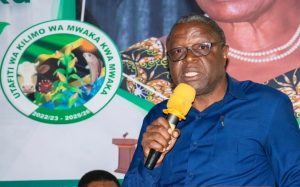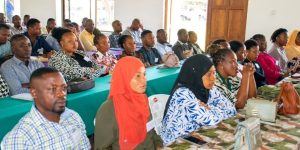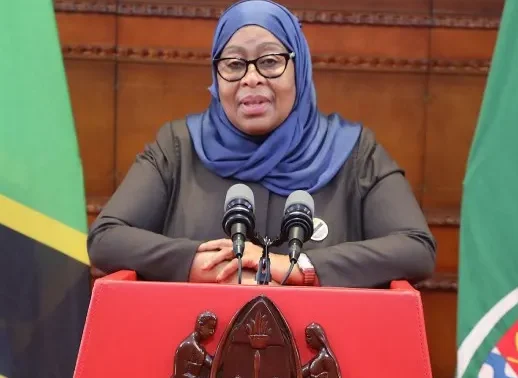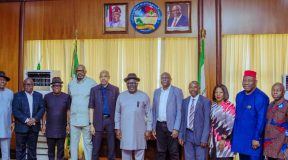Samia Suluhu Hassan
OpenLife Nigeria reports that the government of Tanzanian, led by President Samia Suluhu Hassan, has strengthened the capacity of 178 agricultural researchers and survey supervisors from across the country as part of its strategy to enhance policies and implement sustainable plans aimed at boosting the agriculture, livestock, and fishing sectors to increase food production.
This is contained in an information obtained from The Citizen news medium.
According to the information, these remarks were made during the closing ceremony of a 14-day training session for agricultural researchers and supervisors for the 2023/24 year, held in Iringa.
Speaking at the event, the Chief Statistician, Dr Albina Chuwa, noted that the agriculture sector continues to grow, contributing over 26 percent to the national GDP compared to other economic sectors.

“This is a positive sign that agriculture is helping to improve the income of Tanzanians, especially those living in rural areas,” Dr Chuwa said. She emphasized the importance of research in agriculture, pointing out that it employs over 60% of Tanzanians able to work, particularly in rural areas.
Dr Chuwa added that the research is vital not only for strengthening the country’s economy but also for improving the lives of Tanzanians, including their employment and food security.
“This research is crucial as it provides the official data needed for making decisions that improve agriculture, livestock, and fishing,” she emphasized.
Zanzibar’s Chief Statistician, Mr Kasimu Salumu Ally, highlighted the importance of close cooperation between the governments of Mainland Tanzania and Zanzibar to ensure the collected data is of high quality and accuracy.
“Statistics are essential tools for improving production and ensuring food security. We are pleased to see researchers and supervisors equipped to collect, analyze, and use data more effectively,” Ally said.
The training aimed to equip researchers and supervisors with the skills needed to contribute effectively to sustainable development in the agriculture, livestock, and fishing sectors, ultimately enhancing the national economy.
The Sustainable Development Goals (SDGs) aim to end hunger worldwide by 2030. Approximately 690 million people globally face hunger, and Tanzania, as part of the world, is implementing various strategies to boost food production, including capacity-building for agricultural researchers and supervisors.

The United Nations Sustainable Development Goals (SDGs), adopted in 2015, include Goal 2, which aims to “end hunger, achieve food security and improved nutrition, and promote sustainable agriculture” by 2030.
According to the 2020 State of Food Security and Nutrition in the World report by the Food and Agriculture Organization (FAO), around 690 million people globally were facing hunger at the time, a figure which has likely increased due to economic disruptions, climate change, and other challenges.
At the end of the training, Census Commissioner Ms Anne Makinda urged the researchers and supervisors to contribute to President Samia Suluhu Hassan’s vision of ensuring sufficient food production for the country and exports.
She said that agricultural supervisors and researchers are expected to be diligent and professional to provide high-quality data on agriculture, livestock, and fishing, which will help strengthen these sectors and make the country self-sufficient in food while improving the economy.

“The government is committed to utilizing our resources—land, rain, and people—to produce enough food and achieve economic growth,” said Makinda.
Ms Makinda also highlighted that 53.4 percent of Tanzanians are energetic young people, but this workforce needs guidance through data to understand what they should cultivate and the available markets.
In 2023, the agriculture sector contributed 26.5 percent to the national GDP, with crop farming at 16.1percent, livestock at 6.2 percent, forestry at 1.7 percent, and fishing at 2.5 percent respectively.
The training benefited participants like Mr Paul Nondo, who shared that it had enabled them to identify the agricultural and livestock areas needing in-depth research.
“When we conduct research, we look into farming areas, cultivated crops, livestock, and aquatic creatures like fish,” Nondo explained.
Source: Friday Simbaya, Iringa-Tanzania







